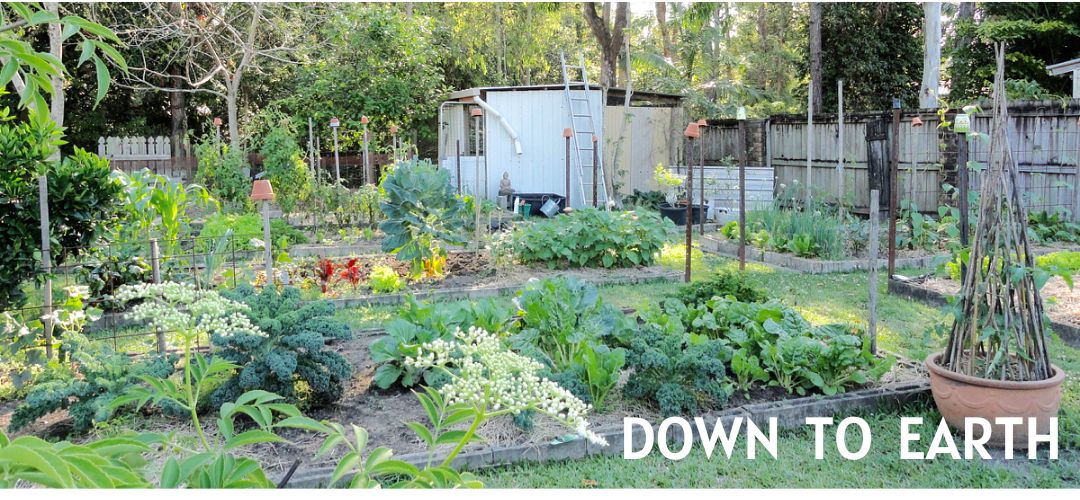I have received quite a few emails lately asking about what I call the hierarchy of food. The questions ask how important is it to eat organic food, how can we afford to buy it on our limited budget and how does organic food fit into a simple and frugal life.
As many of you know, we grow a lot of our own fruit and vegetables and we have chooks for eggs; all that is organic. We try to grow our garden so we have a continuation of supply but that doesn't always happen so we have to buy what we need. This is how we do it and my reasoning behind where we buy what we do.
We never buy certified organic fruit and vegetables. We can't afford it, but I don't worry about it. We buy Australian fruit and vegetables from Aldi if we are due to go there for our grocery shopping, if not we'll go to the local Sunday farmers market and buy there. I have no doubt some of the produce there is organic but isn't sold as organic because it's not certified. We never buy from Coles or Woolworths but I do buy Australian produce from our local IGA and green grocer, and check out the prices at each place before buying (they are across the road from each other). If there is a choice, we buy from our our State, if not, we buy Australian. I never buy fresh fruit or vegetables from another country, I prefer to go without.
We buy organic bakers flour and it's the only organic product I continue to buy. It's more expensive than the ordinary flour but we eat bread every day and I think it's better that it's mainly organic. The other ingredients in the bread aren't organic, but plain cooking salt is as close to organic as you get without a certification, the butter and milk powder aren't organic and neither is the yeast. I try to not think about the milk powder, I have a lot of it in my stockpile cupboard and I'll use it all but I don't use it instead of liquid milk now, I only use it in cooking. Reading Nourishing Traditions has changed my mind on milk powder.
We usually buy local fresh Guernsey milk. I see these cows grazing on pastures around here every time I drive up the mountain. They live in a healthy natural environment. The dairy industry is a small, but important, part of the area I live in. We want to support them, so we buy local dairy foods, and that includes local cheese and yoghurt. I still make my own yoghurt when I can but when I buy it, it's locally made, but not organic.
Since we read Nourishing Traditions and have added back a small amount of meat to our diet, we buy local pasture raised, grass fed meat. This meat is usually shin beef, which I slow cook for the natural gelatine it contains. The meat is not organic, but it is local.
When you do your shopping, and if you can't afford to buy organic food, try to buy local. You might find that your local butcher or green grocer has sourced local food and will know a lot more about the food they sell than your local supermarket. If you live in an area where people are growing food, try to barter with them. If you're growing some of your own food, you might be able to barter eggs for honey, tomatoes for local milk or a box of your produce for some meat from your local butcher. Anything is possible, you just have to ask around.
As homemakers we are responsible for the food brought into our homes and for buying the healthiest food for the dollars we have available. I believe that if you are living on a limited income you will do more for your health if you cook from scratch, with as much fresh produce as possible, than trying to buy all organic food. Get rid of the food that contains preservatives and added flavourings and colours. Buy oatmeal instead of processed cereal, make macaroni and cheese from scratch, not from a box, encourage your family to eat fresh fruit by having a bowl of it on the kitchen table. Start your own vegetable garden if you have the space and time. Get rid of your chemical cleaners and clean instead with vinegar, bicarb and soap. Recipes for making your own cleaners are here. That will be a big step towards a healthier life.
Don't be pressured into buying organic food if you can't afford it. Of course it's great to eat organic if you can, but when you have to stretch your dollars as much as possible, all organic usually isn't an option. Like everything else in this simple life, it takes a bit of organising to discover where you'll get value for money, but always be guided by your own values, not by what someone tells you or what you read - and I include my blog and myself in that. If what I write here doesn't fit well with your value system and how you've decided to live, don't do it. Simple living is all about living an authentic and examined life and if you've thought about the values you want to live by, be confident and stick with them no matter what others around you are doing.



